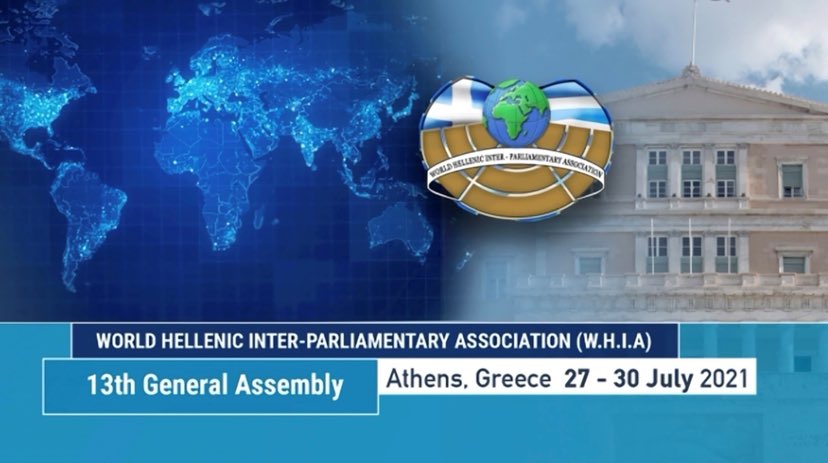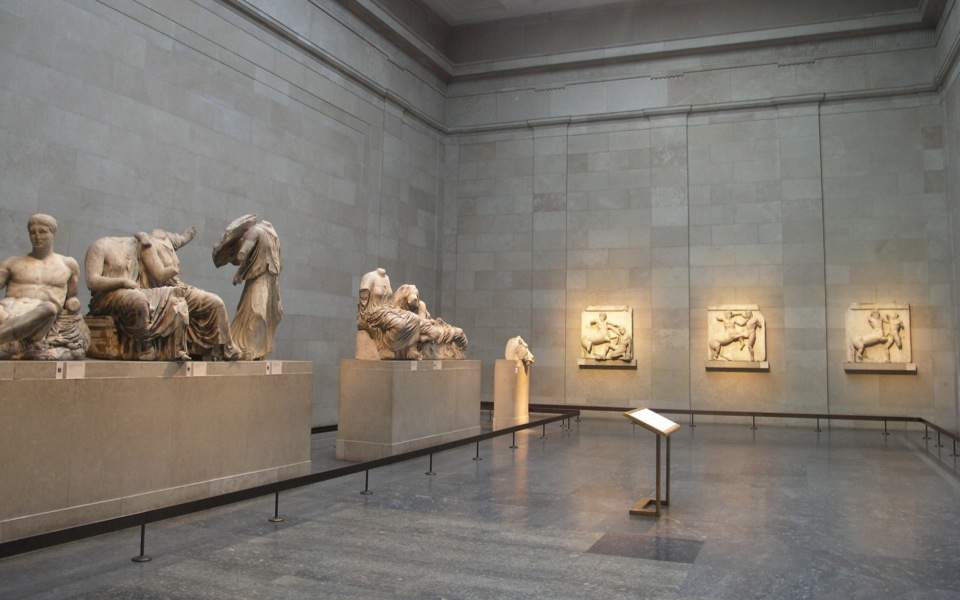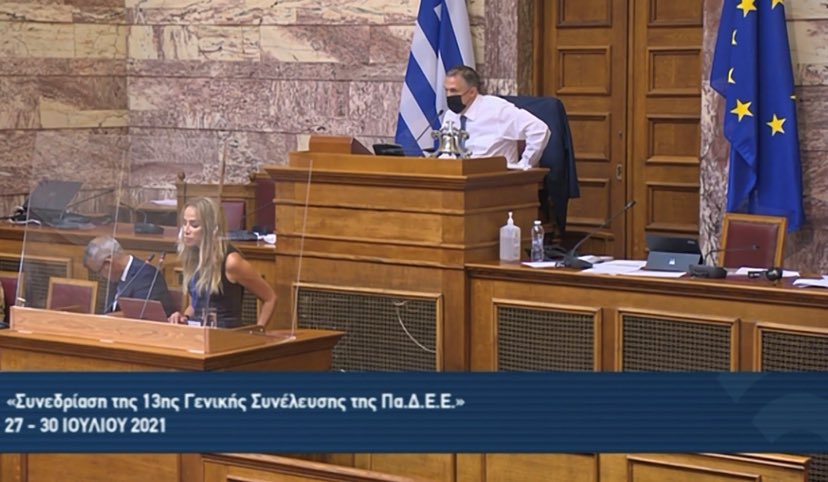The 13th General Assembly of the World Hellenic Inter-Parliamentary Union (PADEE) concluded its three day conference in the Greek Parliament in Athens on 30 July 2021 with a unanimous resolution calling for the reunification of the Parthenon Sculptures.
The assembly was attended by nearly forty elected legislators of Greek descent from the diaspora, including France, Germany, the USA, Jordan, Canada and Sweden, under the chair of US Rhode Island State Senator Leonidas Raptakis.
The delegates listened to an impassioned presentation from Ms Elly Symons, the co-Vice Chair of the Australian Parthenon Committee, on recent developments in the international campaign for return and the legal and diplomatic strategies that Greece can pursue to secure the reunification of the sculptures looted by Lord Elgin and held in the British Museum since 1816.
Elly Symons noted that as Greece celebrates the 200th anniversary of the start of its War of Independence in 1821, Hellenes and Philhellenes all over the world are engaged in another battle for the return of the Parthenon Sculptures.

Surveying the recent history of the campaign, Ms Symons recalled that the former Greek Culture Minister Melina Mercouri in her famous address to UNESCO in 1982 declared that the call for return is made in the name of cultural heritage of the world and the voice of the mutilated monument itself that cries out for the marbles to be returned.
But sadly, the British have stonewalled ever since and yet Greece continues to hope misguidedly that eventually England will do the right thing.
Ms Symons reminded the audience that as far back as 2002, the British made their position clear after Greece suggested a long-term loan of the Parthenon Marbles in return for reciprocal and recurring loans of other rare Greek antiquities. The Chairman of the Board of Trustees in correspondence with the Greek government at the time declared that the British Museum “is the best possible place for these wonderful achievements to be on display” and that he could not envisage the circumstances under which the Trustees would ever agree to endorse a loan, permanent or temporary, of the Parthenon sculptures in the museum’s collections.
As Elly Symons observed, the arrogance and hubris of the British Museum is there for all to see. And regrettably, nothing has changed.
According to the seasoned Greek-Australian campaigner:
”A new strategy is needed – one that embraces an array of coherent political, diplomatic and legal tactics designed to bring pressure to bear on the British Museum and the British Government.”

One such strategy, described as being the least problematic, is to approach the International Court of Justice for an advisory opinion. Such a step would add a powerful legal dimension to Greece’s cultural diplomatic cache.
Ms Symons explained that Greece has been vocal in the General Assembly of the United Nations, having successfully sponsored resolutions for the return or restitution of cultural property to their countries of origin in 2012, 2015 and again in 2018. As she pointed out:
“The cultural diplomacy or soft power exercised by Greece in securing support for this resolution can serve as a benchmark for pursuing an advisory opinion from the International Court of Justice which is also the principal judicial organ of the United Nations.”
The advisory opinion procedure actually allows other Member States to take part in the proceedings, presenting both oral and written submissions, and it is anticipated that many States would intervene to argue in favour of the reunification of the Marbles. The Court would be invited to acknowledge that the return is supported by the emerging rule of customary international law that cultural treasures lost in times of occupation or dependence must be returned to their countries of origin.

Ms Symons concluded that the Greek Revolution that we celebrate today will not be complete until the Parthenon Sculptures are finally reunified in Greece and for that to occur the Greek State needs to embrace a combined legal and diplomatic strategy if it is ever to unchain our beloved Marbles from their London prison.
The delegates at the General Assembly warmly applauded Ms Symons and considered a draft resolution moved by the American delegate from the Connecticut House of Representatives, Eleni Kavros DeGraw.
In the resolution it was noted that the Parthenon Sculptures are the most important keys to the ancient history of Greece and constitute cultural property that enhances the identity, understanding, and appreciation for the culture that produced it. The delegates also recalled the resolution (moved by Greece) that was adopted by the UN General Assembly on 13 December 2018 for the return or restitution of cultural property to the countries of origin that is of fundamental spiritual, historical and cultural value to them.
The General Assembly proceeded to pass the strongly-worded resolution, expressing profound regret at the continuing refusal of the British Government to engage with the Greek Government in meaningful dialogue and bilateral discussions for the reunification of the Parthenon Sculptures, and calling upon the Greek Government to renew and prosecute all diplomatic, political, cultural and legal options available to Greece to secure the reunification of the Parthenon Marbles.
The Greeks of the Diaspora have once again shown their passion for this noble cause and the members of the World Hellenic Inter-Parliamentary Association are to be commended for their work and initiative.
George Vardas
Co-Vice President, The Australian Parthenon Committee
